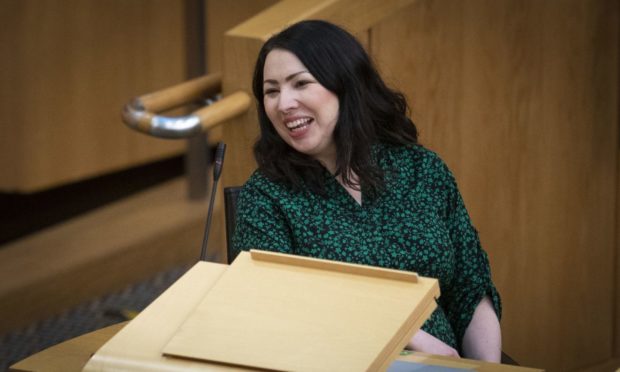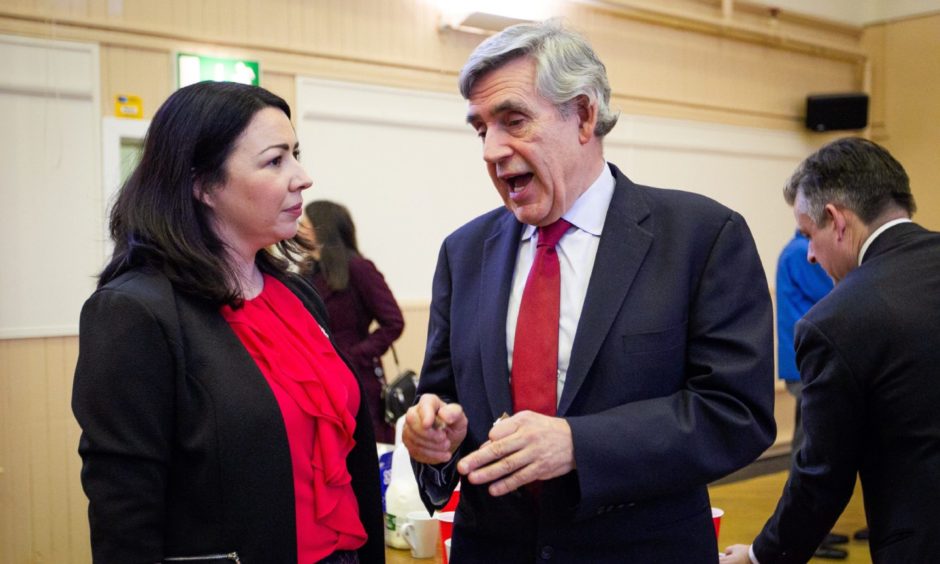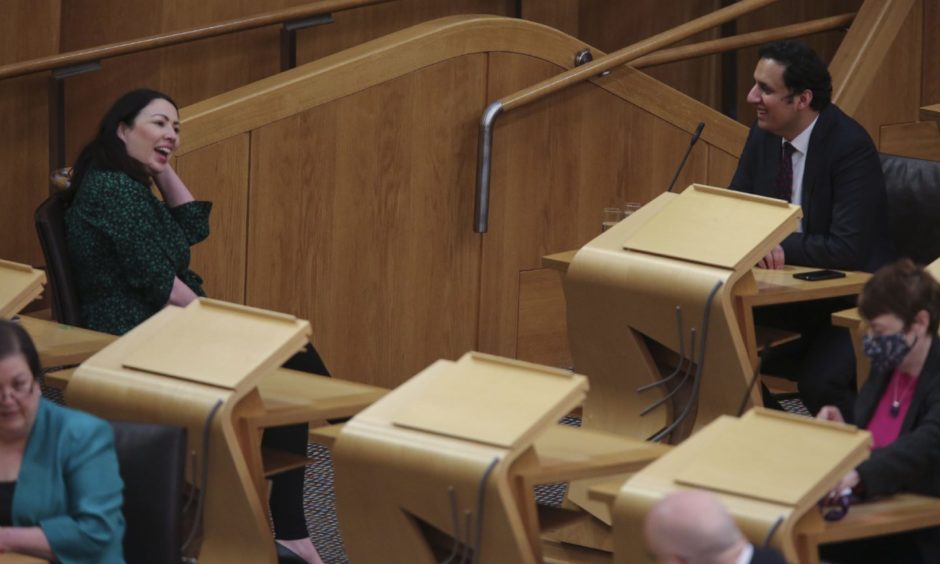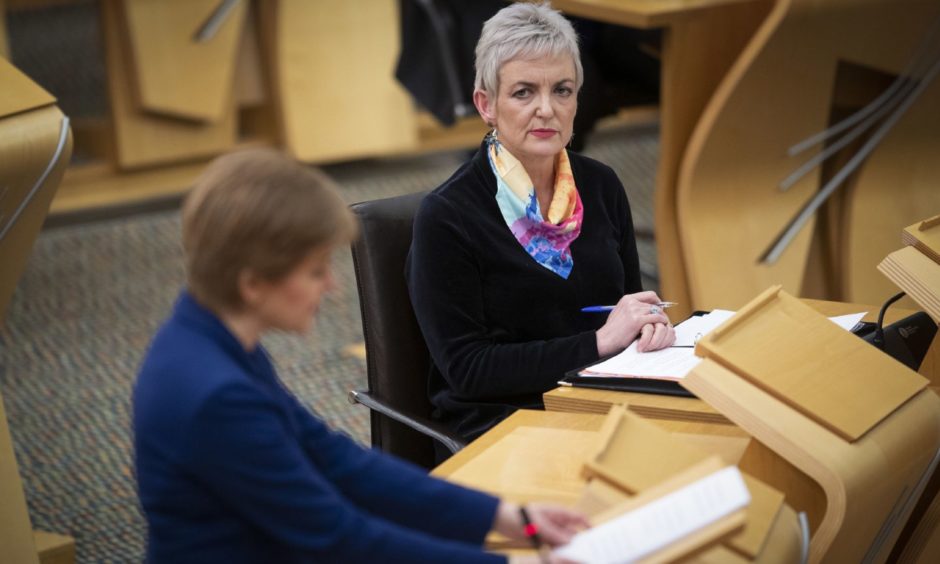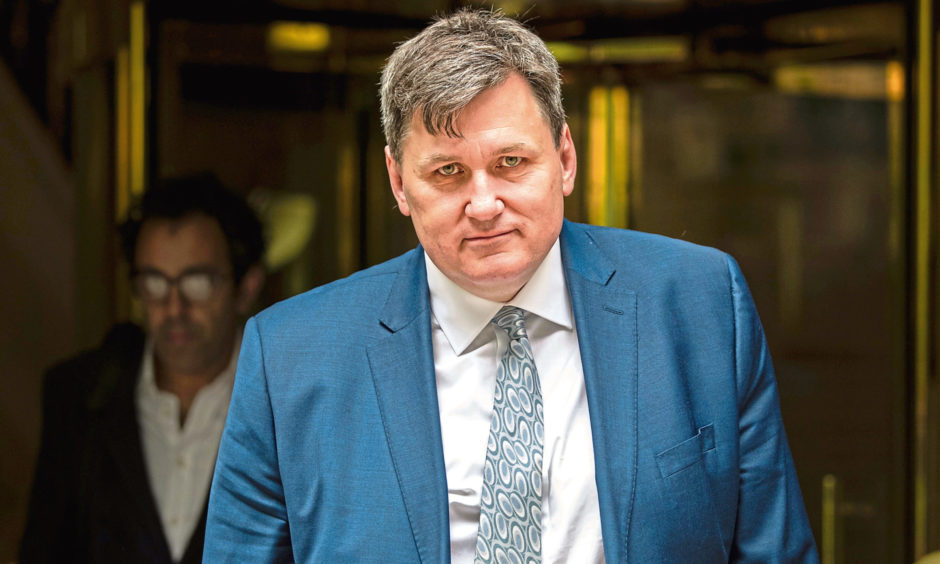Monica Lennon has pledged to not turn her face away from those who believe the independence question has yet to be settled.
In doing so, she has set herself apart from many within her party and certainly from Anas Sarwar, her competitor in the Scottish Labour leadership race and widely billed as the “establishment candidate”.
Ms Lennon, who recently steered the passage of a landmark bill to introduce free access to period products, said the party requires “fresh leadership” if it is to again play an active part in Scottish politics.
The MSP said it would be “arrogant” to tell Scots they cannot have another independence referendum, adding that if there is one, her party must be ready to put forward an “alternative vision to Scotland”.
Mr Sarwar, who she is going head to head with, has ruled out supporting another referendum for five years.
“Independence is not my cause; my cause is change in the country,” Ms Lennon said.
“If in the future the people in Scotland have decided they want a referendum, and that is the choice of the people in Scotland to make, then Scottish Labour has to be part of that process; they can’t sit it out so it’s up to us to shape the debate.
“We can’t just leave it to the SNP, or whoever is running an independence campaign, to decide the questions, to decide the terms of that debate, so if Scottish Labour sits on the sidelines then we’re not going to have any influence.”
If Scottish Labour is going to succeed then it needs to show people “that we’re behaving differently, that we’re acting differently and we’re prepared to listen to them and the changes they want in Scotland,” Ms Lennon said.
‘Still angry at Scottish Labour’
The Central Scotland MSP, who is currently Scottish Labour health spokeswoman, said she has been contacted by people who are not members but are either Labour Party voters, former voters or individuals who have a “real interest in Scottish politics changing”.
She said: “That’s where I think we can really use this process to choose the Scottish Labour leader, not just to talk to each other and ourselves, but I want to go beyond that and reach out to those people who feel left behind; abandoned.
We’ve lost members and voters who believe in Scottish independence.”
“Some of them are still angry at Scottish Labour for decisions we’ve made in the past.
“I want to show instead of fighting old, tired party battles, I’m going to be out there, fighting for them.
“We’ve lost members and voters who believe in Scottish independence.
“At times we’ve had people go the other way, to the Tories. But we just have to be comfortable in our own skin on who we are and tell our own story.
“We have to put forward an ambitious agenda to bring forward the social and economic change they want to see.”
‘We need more creativity’
The Scottish Labour politician believes her party needs to be more creative if it is to attract voters who are being turned off from political debate as it’s “so polarising”.
She points to social media, where politics has become a “very hostile environment to be in” but stresses it “doesn’t have to be that way”.
The contest between herself and Mr Sarwar has been “good-natured” she said, adding she thinks the party has “two good candidates” to choose from.
The 40-year-old, who is from Blantyre in Lanarkshire, said: “I’ve not just come into the race to prevent a coronation.
“It’s about me believing that I have something important to offer the Scottish Labour Party.”
Looking ahead to the huge challenges the country faces over the next few years, as it emerges from the Covid-19 pandemic, Ms Lennon said, under her leadership, the party will “not accept more of the same”.
She said: “Under my leadership, we will not accept more of the same, more austerity, more cuts to vital services. We cannot grow our economy after Covid-19 if our public services are on their knees.
“We need to make sure that those key workers who have kept the country going, that they get a pay rise and put money in their pockets, that we give businesses big and small the resources they need to keep going and to hopefully come through this pandemic perhaps in a more dynamic way.”
‘The war on drugs has failed’
Ms Lennon backs a devo max option appearing on any ballot for a second independence referendum and cites control of drug laws as one important area in which Holyrood could get additional powers.
First Minister Nicola Sturgeon admitted last week that “more should be done” to tackle the “national disgrace” of Scotland’s drugs deaths crisis as she announced more than £250 million of new funding to get to grips with the issue.
As part of the funding pledge, £20m will be used to provide residential rehabilitation programmes following calls from the Scottish Conservatives to replace historical cuts to the schemes, as well as alcohol and drugs partnerships.
In a statement to the Scottish Parliament on Wednesday, Ms Sturgeon said she would not “shy away” from her government’s previous failures to address the issue and launched a “national mission” to turn the tide on the crisis.
Although she welcomes the funding, Ms Lennon said it is “long overdue” and described it as a “national crisis” that Scotland has the highest level of drugs deaths in Europe.
She said: “I’m very clear that the response to the drugs crisis has to be rooted in public health measures and joined up approaches across housing, healthcare, education and criminal justice.
“Boris Johnson’s government has ignored the recommendations of the UK Scottish Affairs Committee.
“They’ve put that away in a drawer and ignored that and I think that’s wrong.
“That’s why I do believe that there should be further devolution of drugs policy for Scotland because I don’t believe sending people to jail because they’re unwell because they’ve got a drug or alcohol addiction is the answer.
“People need to have the opportunity to get well.”
Lives cut short
The MSP has personal experience of the heartache caused by addiction, as her father, Gerard Ward, died in 2015, aged 60, as a result of his alcoholism.
Ms Lennon said this has given her “insight” and allows her to “understand what people are going through”, adding that her politics was shaped in her “formative years”.
She said: “I know too many people who have died prematurely and had their lives cut short well before their time.
“Never again can any government in the Scottish Government write people off and stigmatise people by telling them that you’re not worth public funding, that you’re not worth healthcare.”
There are currently no plans to change the current devolved powers around drug policy, with the legal framework around drug misuse, the responsibility of the UK Government.
Minister for Crime and Policing Kit Malthouse said many of the powers to reduce drug-related harms are devolved to the Scottish Government, such as for substance misuse treatment and mental health services.
He added the UK Government would like to see them make “better use of these powers”.
He said: “Illegal drugs devastate lives and communities, and we will always work at all levels and with the devolved administrations to tackle drug misuse, tighten controls on dangerous substances and widen the availability of treatments which prevent overdose deaths.”
